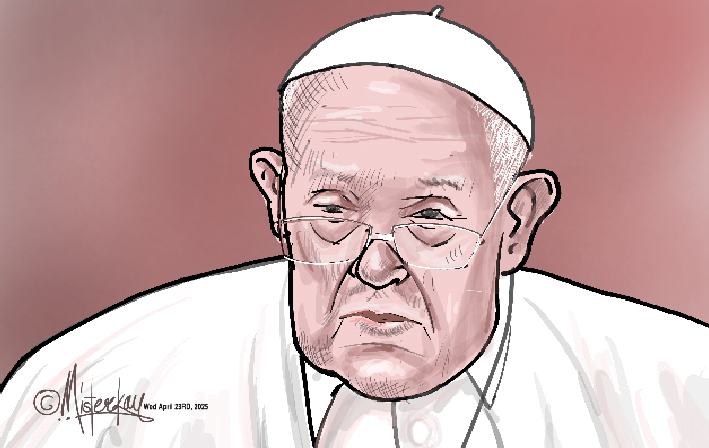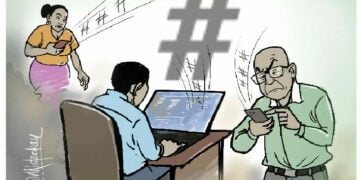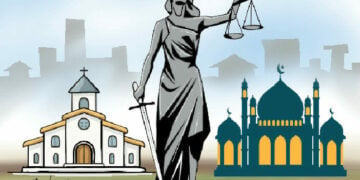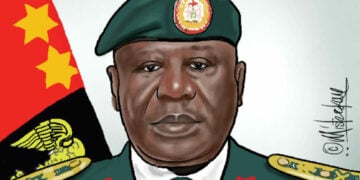Pope Francis, the first pope from the Americas and one of the most transformative pontiffs in modern Catholic history, died on April 21, 2025, at the age of 88. His passing marks the end of an era defined by compassion, humility, and bold efforts to reform the Church for a new generation.
Born Jorge Mario Bergoglio in Buenos Aires, Argentina, he rose from humble beginnings to lead over 1.3 billion Catholics worldwide through a time of unprecedented change and challenge. His papacy—spanning more than a decade—was marked by outreach to the marginalised, a vision of a more inclusive Church, and a renewed focus on mercy and justice.
As the bells of St. Peter’s tolled across the Vatican, the world paused to reflect on the life of a pope who reshaped the papacy itself. Elected in March 2013 following the surprise resignation of Pope Benedict XVI, Pope Francis was the first Jesuit pope, the first from Latin America, and the first non-European pope in more than 1,200 years. These “firsts” were more than symbolic—they shaped the global and pastoral tone of his papacy.
From the outset, Pope Francis made it clear that he envisioned a “poor Church for the poor.” He chose the name Francis in honour of St. Francis of Assisi, signalling a commitment to simplicity, peace, and care for creation. He abandoned many of the traditional trappings of papal life, opting for modest housing and often travelling in a small Fiat or on foot.
His leadership style was deeply pastoral, marked by gestures of humility and a preference for personal encounter. He washed the feet of prisoners, embraced refugees, and frequently spoke about God’s mercy as the beating heart of the Christian message.
A Reform-Minded Pontificate
Pope Francis’s papacy was notable for its emphasis on reform, not only in governance but in tone and theological emphasis. He sought to decentralise the Vatican’s power structure, empower local churches, and make Church leadership more accountable and responsive.
Under his leadership, the Synod on Synodality became a hallmark initiative, inviting laypeople, women, and even non-Catholics into conversations about the Church’s future. This openness to dialogue stood in contrast to previous hierarchies that were more centralised and rigid.
He tackled issues of financial transparency, pushed through new mechanisms for addressing clergy sexual abuse, and streamlined the annulment process. While critics argued that deeper institutional reforms were needed, many observers credit Francis with beginning a cultural shift within the Vatican bureaucracy.
Pope Francis also elevated social justice and environmental stewardship to the heart of Catholic teaching. His 2015 encyclical Laudato Si’ called for global action on climate change, linking care for the environment with care for the poor—an integrated vision of justice that resonated far beyond the Church.
More than any recent pope, Pope Francis sought to reach those on the margins of society—and of the Church. His now-famous phrase “Who am I to judge?” in response to a question about gay priests marked a turning point in tone, signalling a more welcoming and inclusive approach to people of different diversities, even if doctrinal teachings remained unchanged.
He consistently advocated for migrants and refugees, criticised unbridled capitalism, and condemned what he called the “globalisation of indifference.” His advocacy extended to interfaith dialogue, as seen in his landmark Document on Human Fraternity signed with the Grand Imam of Al-Azhar in 2019, promoting peace between Christians and Muslims. Pope Francis’s teachings are sorely needed in Nigeria today as the nation reels from religious and ethnic intolerance and violence, especially in the north.
Pope Francis also elevated the voices of women, appointing several to senior roles within the Vatican for the first time and supporting discussions about the diaconate for women, though stopping short of endorsing their ordination. While his critics—particularly among more conservative factions—argued that he sowed confusion or diluted Church teachings, many others celebrated his efforts to bring warmth, nuance, and humanity to a deeply traditional institution.
A Global Shepherd in a Polarised World
Leading the Church during a time of increasing political and cultural polarisation, Pope Francis became one of the few global moral voices who could speak across divides. His calls for peace in Syria, Ukraine, the Holy Land, and beyond often rose above the din of partisanship, appealing to conscience rather than ideology.
During the COVID-19 pandemic, he offered powerful spiritual leadership, famously standing alone in a rain-soaked St. Peter’s Square in March 2020 to pray for the world. His calls for vaccine equity and global solidarity echoed the Church’s broader mission to stand with the vulnerable.
Yet his outspokenness was not without cost. He drew sharp criticism from nationalist leaders and culture war combatants, particularly in regions like the United States, where debates over abortion, gender, and liturgical norms often overshadowed his broader message.
Despite the controversy, he remained focused on what he called “the Gospel essentials”—love, mercy, justice, and solidarity. Religious leaders across the world should take a leaf from the life of Pope Francis who lived humbly and showed mercy and empathy to all regardless of their diversity.
He was very connected to the people whom he served and remained steadfast in his belief that the Church was a place for the weak and vulnerable to find comfort and solace not rejection and judgement.
A Pope of the People
Pope Francis’s death leaves the Catholic Church at a crossroads. His efforts to shift the centre of the Church away from Europe and toward the Global South are already bearing fruit, as vibrant Christian communities in Africa, Asia, and Latin America increasingly shape global Catholicism.
His successor will inherit both an energised and deeply polarised Church, one in which questions of identity, authority, and mission are actively contested. The ongoing Synod on Synodality, which he initiated, may be the most lasting structural contribution of his pontificate, potentially reshaping how the Church governs itself for decades to come.
Pope Francis’s vision of Christianity as a field hospital rather than a fortress, focused on healing wounds rather than reinforcing boundaries, may serve as a blueprint for religious communities in an age of doubt, disaffiliation, and spiritual seeking. In the end, he will be remembered not for theological tomes or institutional edicts, but for gestures—small and large—that revealed the heart of a pastor. A hug, a phone call, a prayer in silence, a word of hope to someone forgotten.
He brought the papacy closer to the people and reminded the world that at its core, the Christian message is one of love, faith and humility. Even in death, his simplicity is evident in his wish for stripping back the usual grand papal funeral procedure to ’emphasise even more that the Roman Pontiff’s funeral is that of a shepherd and disciple of Christ and not of a powerful man of this world’, according to Monsignor Diego Ravelli, the master of liturgical ceremonies.
As millions mourn his passing, the legacy of Pope Francis endures in the countless lives he touched, the doors he opened, and the Church he helped reshape—one that, in his own words, must always “go out into the streets” to meet those in need.





